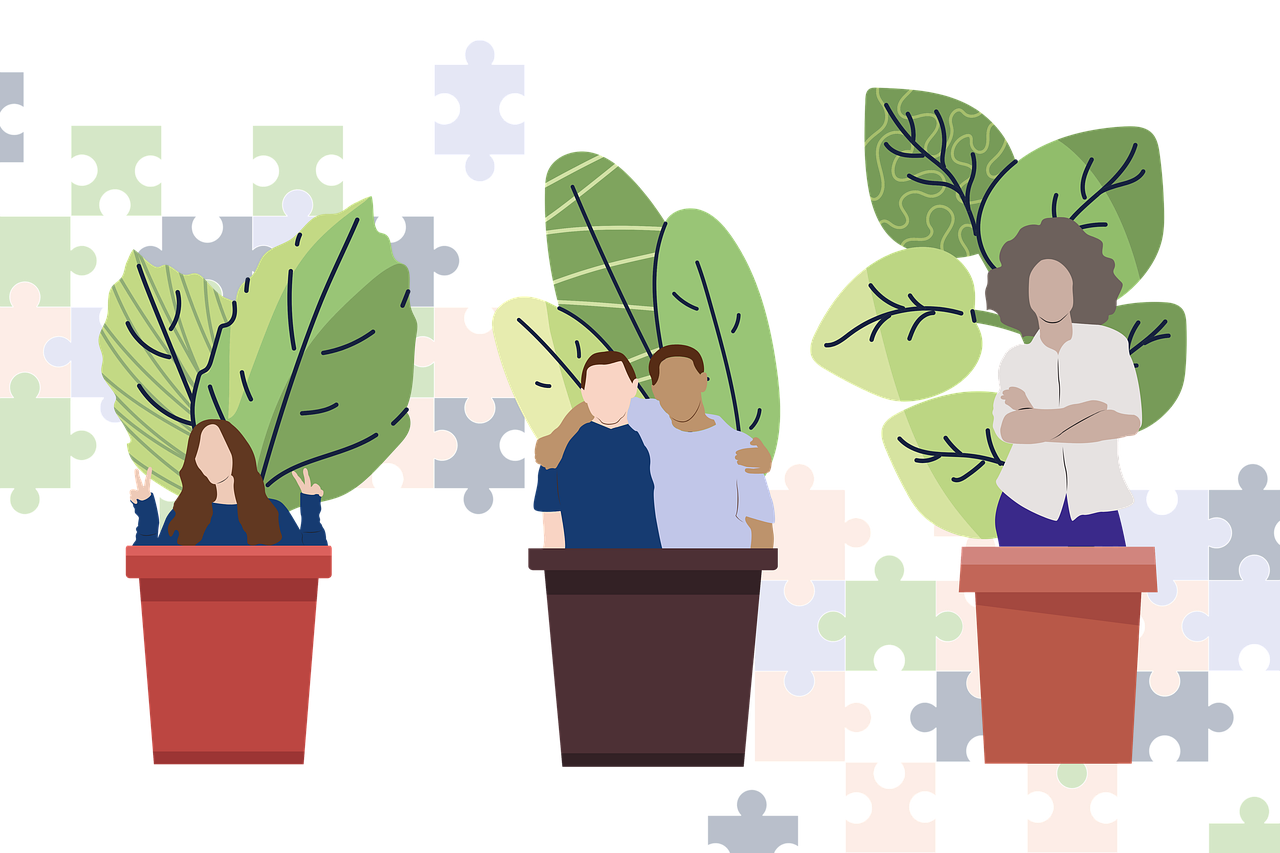Hyperthesis – The Quest for Equilibrium, Scientifically Speaking

Background Information
Recently I had some time to think (a bit more than I'm used to, thanks to the Covid-19 situation). After I exhausted all the things I had on my list, I let my mind wander on a topic that I've pondered upon a few years ago, when I first delved into complex systems: evolution. Note that evolution here has a different meaning to the Darwinian evolution, which has a very particular context. Evolution for me is a mathematical process that's more akin to computational biology than anything else. I even wrote a book about it (Evolution Dynamics), which I never published, however, since it was too niche. Anyway, I say all this so that you know that this is not some idea I had in the shower the other day but something I've been contemplating for at least a decade.
Hyperthesis – Definition & Scope
So, what is hyperthesis and what's the deal with such fancy terms? Well, hyperthesis is a state beyond the plane defined by thesis-antithesis-synthesis. It is a point of reference of sorts, related to the “observer” in Quantum Physics. Naturally, this idea, when applied to QP, it takes a very concrete form, namely the superposition concept.
The scope of hyperthesis, however, goes beyond QP. The latter is just a very niche application of hyperthesis and one that doesn't affect us directly. Hyperthesis involves all sorts of complex systems, namely systems that exhibit a certain level of unpredictable behavior. The latter is usually referred to as "irreducible complexity" a term often used by the scientist who delved into this subject more than anyone else (Dr. Stephen Wolfram).
Hyperthesis – Principle of
Anyway, hyperthesis on its own is interesting and to some extent useful but it’s the dynamic aspect of it that is what's worth focusing on. Otherwise, it's just a philosophical notion that may or may not translate into useful knowledge. The principle of hyperthesis is the controlled oscillation between the states of thesis and antithesis until the synthesis state is reached. The latter is usually referred to as equilibrium and though not always static, it is the state of robustness in the system examined. I have developed a fairly simple formula (it has just three operators and two parameters) but I'd rather not go into the math of all this right now.
Hyperthesis – Applications
Applications of hyperthesis and its principle range across every field. However, not everyone is aware of these (after all, most people nowadays tend to be specialists and if they have a term for them, they are too obscure for anyone else to access them). Still, fields like Data Science and Artificial Intelligence (AI) are directly affected by this idea. I’ll talk more about this in my next blog article this Monday (May 4th). As I’m still new at the application level of this idea, I cannot provide any specifics at the moment. Hopefully, Ali 🐝 Anani, Brand Ambassador @beBee (who is more versed in complex systems than I am) could help in that.
Hyperthesis – Personal Involvement
Don't worry, I'm not asking you to get involved in this (unless you want to, of course). I just want to say a few things about how hyperthesis and its principle can be of practical use to a person, even if that person is not versed in science or math. Hyperthesis is a state of mind, one that is often referred to as mindfulness or non-attachment. When you apply will to a state of hyperthesis, i.e. you decide to act on something while you experience this state, you experience the principle of hyperthesis. Namely, you change your mind, oscillating between different views on a topic. As you gather more information and experience, you tend to limit these oscillations until you reach a more stable state (you've made up your mind on the topic). Naturally, this doesn't mean that you'll never change your view on this, but it shows that at least for the time being, you can put a pin on this topic and focus on something else. Once you have achieved equilibrium in every possible topic, your work here is done. Also, as long as you are applying this whole process, you are evolving (at least as a consciousness). Simple, right?
Moving forward
So, what’s next? Well, I've barely scratched the surface of this idea. I hope I didn't oversimplify it but I'd rather start with something borderline obvious than with something overly complex. After all, if there is one thing I've learned from complex systems it is that their basic principles are quite simple. The Mandelbrot Set (probably the most famous fractal out there) is an example of this. Anyway, this is my thesis on the topic (even though it feels like synthesis to me!). Feel free to explore it, even negate it, and come up with your own views on this subject. Cheers!

Articoli di Zacharias 🐝 Voulgaris
Visualizza il blog
Lately, I’ve been thinking a lot about podcasts. I suppose this has to do with the zeitgeist of quic ...

The “Language Model for Dialogue Applications" AI Google developed last year is a machine learning-p ...

This is a stock image for the term “mentee” and doesn't correspond to the taxonomy described in this ...
Professionisti correlati
Potresti essere interessato a questi lavori
-

Finance Manager
Trovato in: Adzuna IT B C2 - 6 giorni fa
Adecco Permanent Recruitment Italy, ItaliaJob description La posizione di Finance Manager richiede un professionista qualificato, preferibilmente con esperienza nel settore dell'energia operante in un'azienda manifatturiera. Le responsabilità principali includono la gestione del budget, reporting finanziario, ottimizzazi ...
-
Magazziniere - Room For Advancement
Trovato in: Buscojobs IT C2 - 6 giorni fa
Relizont Castelnovo ne' Monti, ItaliaWe are seeking a proactive Magazziniere to join our dynamic team at Relizont in Castelnovo ne' Monti (RE). · Growing your career as a Full Time Magazziniere is an awesome opportunity to develop competitive skills. · If you are strong in time management, leadership and have the ri ...
-

Oss Per Rsa
Trovato in: Buscojobs IT C2 - 6 giorni fa
Adecco Italia Torino, ItaliaWe are on the lookout for a competitive OSS per RSA to join our all-star team at ADECCO ITALIA in Torino. · Growing your career as a Full Time OSS per RSA is a fantastic opportunity to develop excellent skills. · If you are strong in persuasion, project management and have the ri ...


Commenti
Zacharias 🐝 Voulgaris
3 anni fa #9
It's funny you mentioned time, Harvey Lloyd. The original formula I came up with for hyperthesis involves time as the independent variable, along with two other parameters. It's a simple formula that's mostly conceptual rather than something that is to be used for solving specific problems, like a statistical model of sorts. Perhaps I can elaborate on this more on another article one of these days. Cheers
Harvey Lloyd
3 anni fa #8
Ali Anani
3 anni fa #7
Ali Anani
3 anni fa #6
OK I then copy and paste them here Harvey Lloyd comment When we look at a ecosystem, say aquatic life, we can see that each species is adapting to a watery environment where, temp, oxygen and food all contribute to a preferred state. There is one thing this ecosystem can not do. Imagine a different state. Humans have the ability to reach beyond their experiences to produce different states and then to project these thoughts through money, activities and social attraction into success. Of course a negative aspect of this exists also. But the single point is that humans can choose to see it differently and act. In this acting out of an imagined preferred state, we accept the risk that comes with creating all the pieces required to go from thought to present. History has shown along with religion, philosophy and science, specific ways of achievement exist. We can look at two very different statements top explore these reviews of history. The individual is stronger because of the community? Or; The community is stronger because of the individual? Depending on which of these questions you ask will determine the lens you use to imagine the future. In the end, the eco-system we live within will be determined by the choice of question.
Zacharias 🐝 Voulgaris
3 anni fa #5
I cannot access this comment. Not sure why, but the earliest comment I can access is after #17...
Ali Anani
3 anni fa #4
Ali Anani
3 anni fa #3
WOW! your comment is full of surprises Great is what you coined dear Zacharias \ud83d\udc1d Voulgaris. You are creative, I am glad that my comment was useful. Yes, the back loop is a field that warrants far more greater attention. You glowed my day
Zacharias 🐝 Voulgaris
3 anni fa #2
If you haven't heard of this term it's probably because I've come up with it (in its English version at least). I had originally planned to write a bit about the word itself, but it would make the article even lengthier and it's already a bit long. I love the example you mentioned about the two brain hemispheres. I believe it drives home the point and it can be seen as a very good application of the idea. The oscillation between the forward and backward loop is something I explored within the field of Machine Learning, namely a data-driven dimensionality reduction method that can scale decently. I got an award for the paper I wrote based on that. So, the idea does have merit, at least in my field of expertise. Possibly in other areas too...
Ali Anani
3 anni fa #1